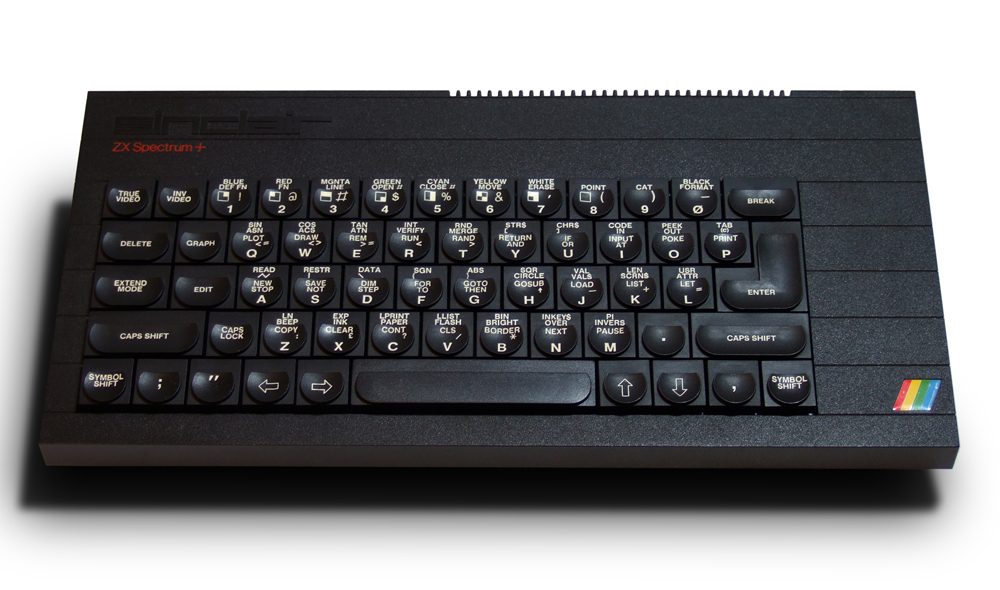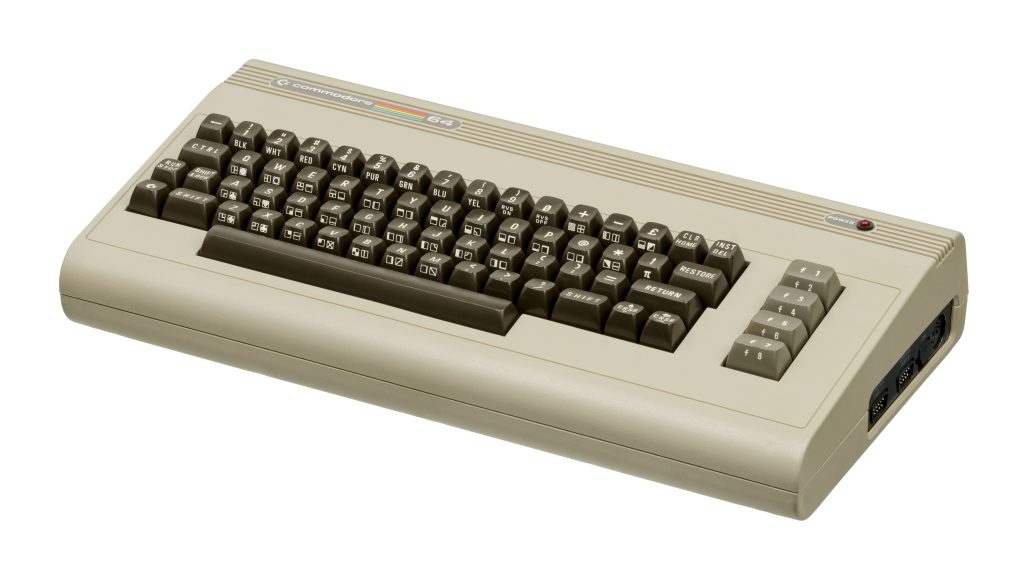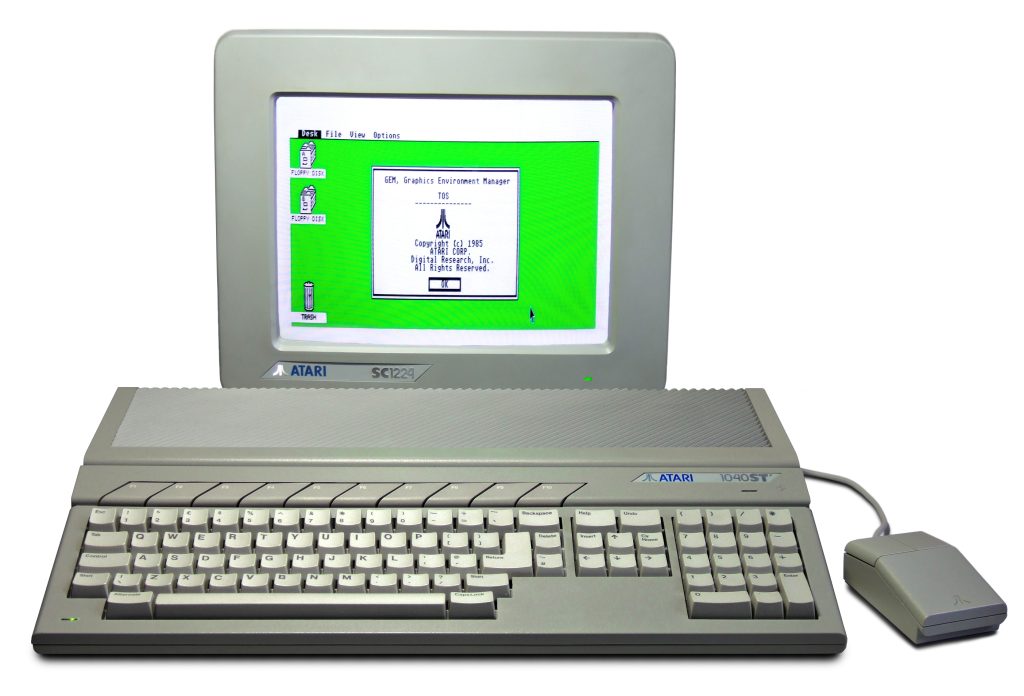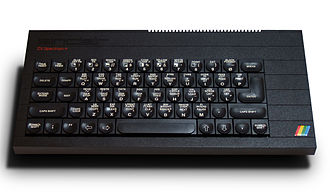


My computers in the 1980s
My first computer was a ZX Spectrum+ 48K. I begged my parents to buy one (we were living in Madrid at the time), and finally one day we went to a big supermarket, called Continente (similar to Costco), and we bought this little beauty. It was connected to a TV (we had a black and white at the time), and beside a 48K RAM, the storage was a tape recorder from which I loaded games like Saboteur or Commando. The tape made a sound similar to the gentle purrs of modems that would come some years later.
However, it was not gaming that intrigued me, but programming, in Basic. A friend of the family in Madrid, who studied Mathematics at Cambridge, showed me how to write a subroutine that displayed a spiral computed with trigonometric functions. He new the math, and I knew the Basic commands, and together we created a spiral that I diligently stored on a tape (all tapes with hand written labels, grouped by categories on my shelf – I am 14 at the time).
The families with money had Commodore 64, which was a much better computer. However, whether Spectrum or Commodore, we all had the same challenge: where does one find instructions to write software? Basic was, well basic, but it was possible at the time to write assembler code for these machines, which was needed to write actions games. There were some magazines with code, but it was not unusual to spend a day copying code from a magazine, only to be disappointed at the end; the code was buggy and didn’t work. Adults failed to see the potential, and viewed computers as big calculators with games on them; it wasn’t obvious that these trinkets were ushering a new mode of information exchange.
Finally, at the end of the 1980s, this time in Toronto, we got an Atari, which was really a first personal computer that wasn’t just for hobbyist. It had a word processor, and a graphics application (an early Photoshop called Calamus). The programming language was more advanced, and portable 8 inch floppy disks were an improvement on tape-based storage.
It is true that scarcity brings clarity. These simple computers allowed one to concentrate on the computing essentials (there was little else), and the frugal computing power and memory required inventiveness. The original games for these computers were clever, and therefore complex to write, but managed to create an attractive simulacrum of adventure with little storage and less computing power. They were the perfect toy.
